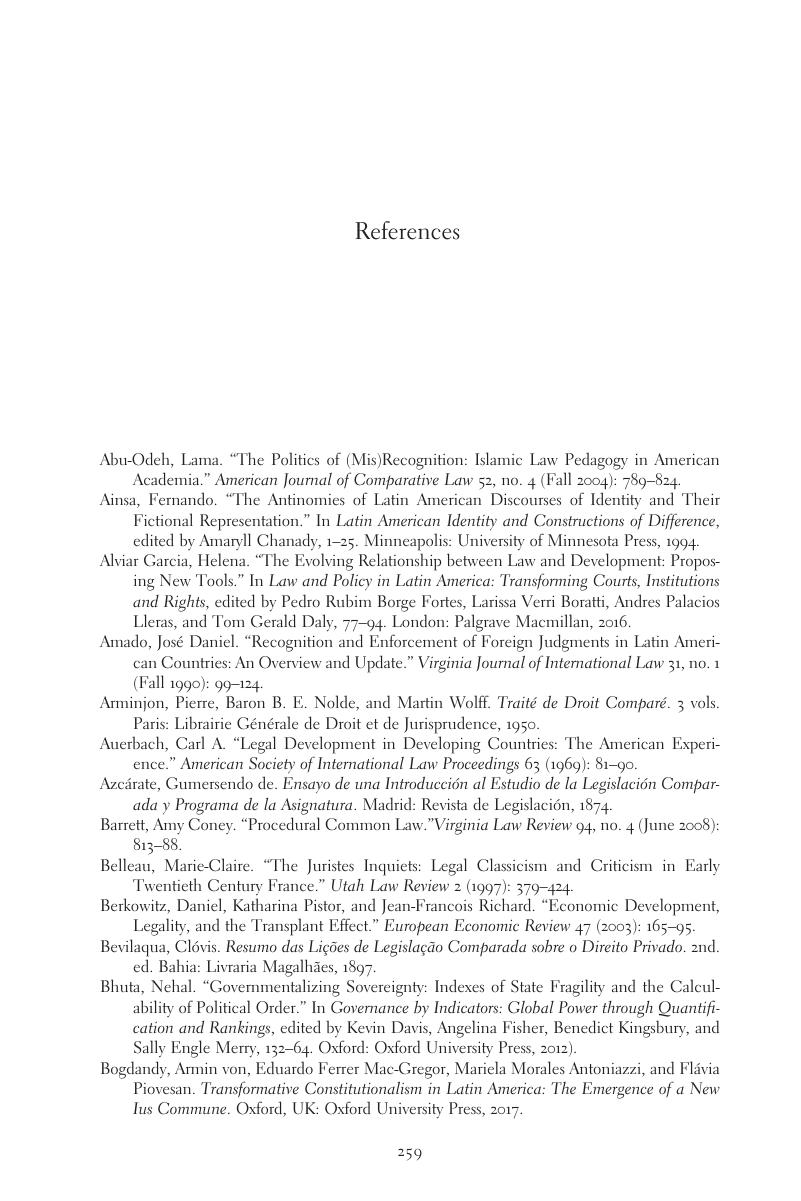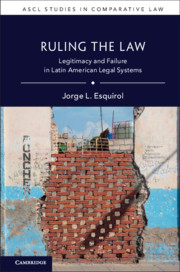Book contents
- Ruling the Law
- Ascl Studies in Comparative Law
- Ruling the Law
- Copyright page
- Dedication
- Contents
- Acknowledgments
- Cited Cases and Arbitral Awards
- Introduction
- 1 The Fiction of Legal Europeanness
- 2 The Fiction of Failed Law
- 3 The Geopolitics of Latin American Legal Fictions
- 4 Latin American Cases
- Concluding Thoughts
- References
- Index
- References
References
Published online by Cambridge University Press: 31 October 2019
- Ruling the Law
- Ascl Studies in Comparative Law
- Ruling the Law
- Copyright page
- Dedication
- Contents
- Acknowledgments
- Cited Cases and Arbitral Awards
- Introduction
- 1 The Fiction of Legal Europeanness
- 2 The Fiction of Failed Law
- 3 The Geopolitics of Latin American Legal Fictions
- 4 Latin American Cases
- Concluding Thoughts
- References
- Index
- References
Summary

- Type
- Chapter
- Information
- Ruling the LawLegitimacy and Failure in Latin American Legal Systems, pp. 259 - 274Publisher: Cambridge University PressPrint publication year: 2019

